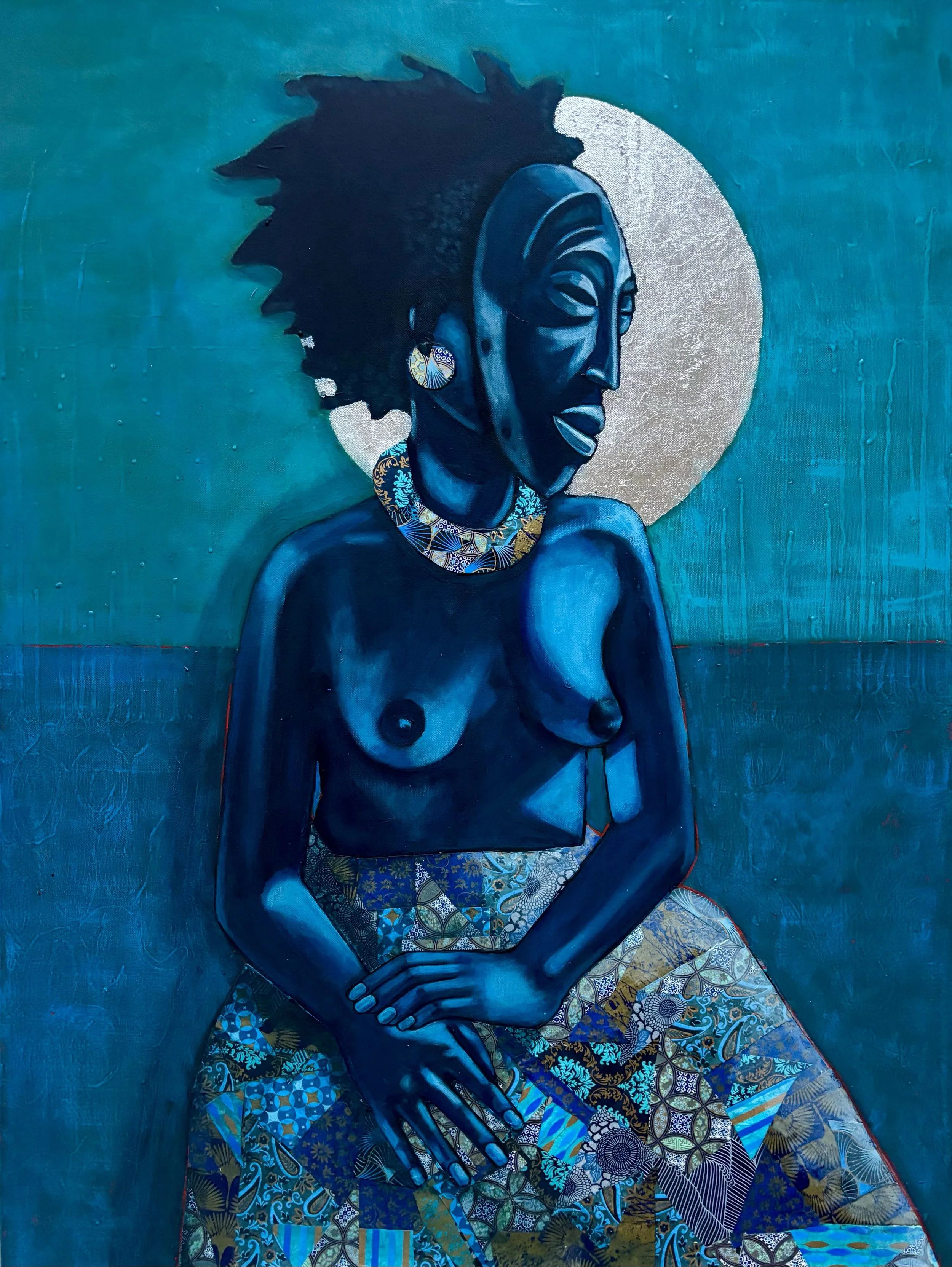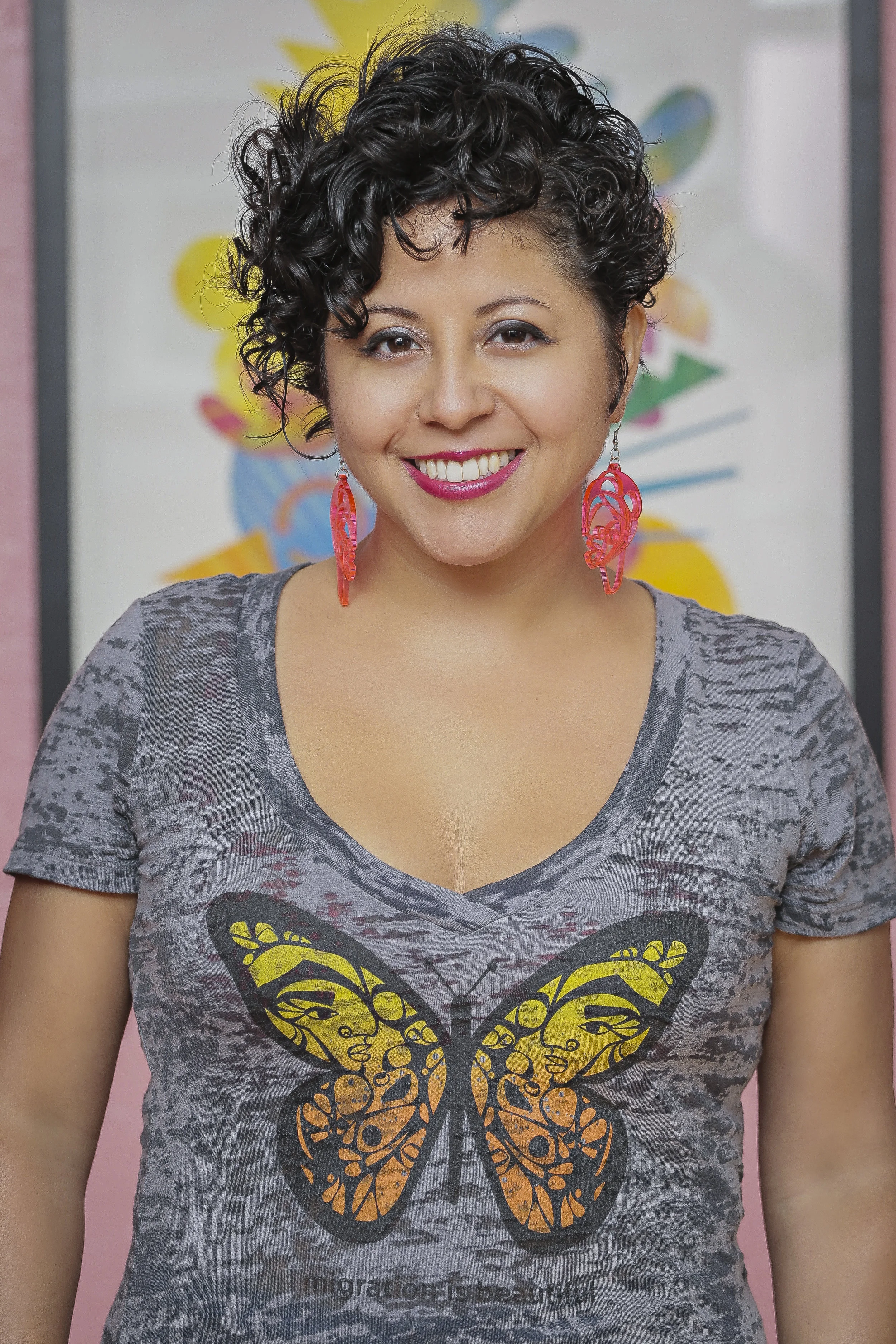If you said you remembered her packed suitcase or her kiss on your forehead before she left you, you’d be lying. If you said you remembered her whispers or the muffled cries, if you said you heard the dog’s bark followed by the engine of your grandfather’s car, then the crunch of the gravel as they headed out of the holler carrying her away from you, you’d be lying. But somehow all of this is true. You’ve carried versions of your mother, versions of her leaving, with you your entire life. Inventing and then re-inventing your mother’s story. Turning your mother over and holding her up to the light like a stone.
Three Women by Favianna Rodriguez
Favianna Rodriguez is an interdisciplinary artist, cultural organizer, and political activist based in Oakland, California. Her art and collaborative projects address migration, economic inequality, gender justice, and ecology. Favianna lectures globally on the power of art, cultural organizing and technology to inspire social change, and leads art interventions in communities around the country.
What We Aren’t (or the Ongoing Divide) by Jennifer N. Baker
The use of “nigger,” in this case, was to further note the chasm between us and them. My mother still liked my husband, soon-to-be ex. She wished him well and understood his mother’s defense of him was a protective thing. “That’s her child,” she added.
But still, there was the N-word. Being Black I wasn’t unaware of its meaning. Though I can’t place where or how I first heard it. This term was rarely used in the household I grew up in, though profanity was a staple. Perhaps the word is so ingrained in African-American DNA I came into the world with it already in my vocabulary.
Hapa by Iwalani Kim
When we don’t align ourselves with multiracialism that goes beyond the Asian diaspora, we are less likely to hold ourselves accountable for colorism, a phenomenon that occurred in Korean immigrant communities after a socioeconomic divide formed between them and Puerto Ricans, African Americans, and Filipinos. We remain silent about such issues, which affect certain mixed-race people, but privilege us. We are less critical in our study of historical antiblackness within Asian ethnic groups and less willing to mobilize in movements like Black Lives Matter.
Other Black Girl Collective by Rachel Eliza Griffiths
The idea of "control" is an illusion when attempting to create a "portrait" of another being. For me, there is the anticipation of a moment that will be unexpected, perhaps very dramatic, or a mood of something entirely else, for both subject and photographer. I like Carl Phillips' sensibility (he applies it to poetry), "…what I'm always after. Nothing gutless, and nothing without its ability to surprise."










